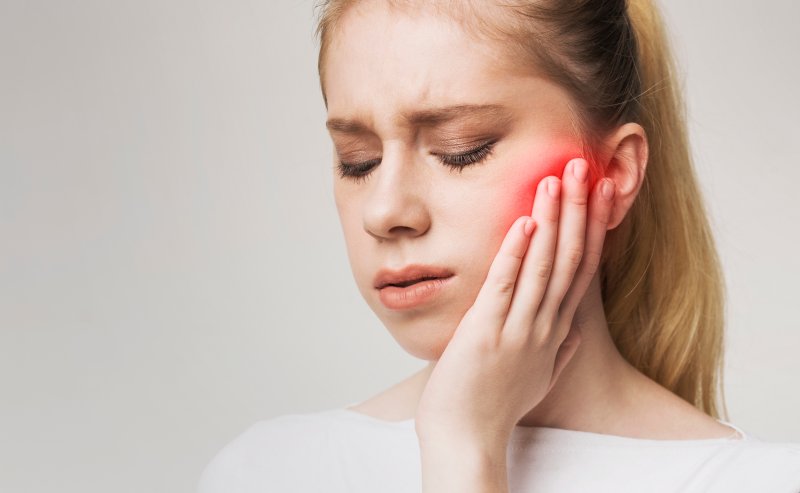Does Tooth Sensitivity Require Emergency Care?
September 6, 2022

Sometimes, it may seem like dental sensitivity came out of nowhere. Whether it’s mild or intense, having a sensitive tooth can throw off your whole day or make it uncomfortable or difficult to eat, drink, or sleep. If you are currently dealing with tooth sensitivity, you may be wondering if this warrants an emergency visit to the dentist. Read on to learn about some common causes of dental sensitivity, if this means you need to visit a dentist, and how to prevent it.
7 Common Causes of Tooth Sensitivity
There are several things that can cause your teeth to be sensitive while consuming foods and drinks that are hot, cold, acidic, or sweet. Your teeth may also be sensitive to cold air, mouthwash with alcohol in it, or brushing or flossing your pearly whites. A few common causes of sensitive teeth include:
- Bruxism, which is characterized by jaw clenching and tooth grinding
- Teeth that are fractured, chipped, or broken
- If the roots of the tooth are exposed
- Periodontal (gum) disease
- Worn tooth enamel
- Cavities or decay
- Worn fillings
Is Tooth Sensitivity Considered a Dental Emergency?
Short-term tooth sensitivity is unlikely to warrant an emergency dental visit, but discomfort that lasts longer than a few days may be a sign of oral health issues, such as tooth decay or a dental infection. Cavities are easy to treat if you catch them early on. But, if you have a tooth that is severely infected, the only way to save it is with a root canal. If you wait too long and the tooth can no longer be saved, it will have to be extracted before the infection spreads to other parts of your mouth or body.
3 Ways to Prevent Tooth Sensitivity
Dental sensitivity is uncomfortable and may be a sign of a serious oral health issue. Luckily, there are a few ways you can lessen your risk of encountering tooth sensitivity, such as:
- Brush your teeth – Every morning and every night, be sure to brush your teeth. Do so for two minutes each time. Use a soft-bristled toothbrush to avoid dental damage. You should also use toothpaste that contains fluoride to strengthen your smile against decay.
- Floss your smile – Every night, floss between your pearly whites to remove plaque and food particles that you missed while brushing.
- Wear a mouthguard – Getting hit in the mouth while playing contact sports can lead to dental damage. Wear either a store-bought or custom-made mouth guard to protect your smile. You should also wear a nightguard if you have bruxism or TMJ (temporomandibular joint) issues.
- Eat the right things – Eat a dentist-approved diet full of fresh fruits and vegetables, lean meat, low-fat or fat-free dairy products, and fish. You should cut back on your sugar and alcohol consumption as well.
Some forms of tooth sensitivity require an emergency dental visit, but others can wait until your next biannual visit to be treated. With the above tips and some help from your dentist, you can keep your smile healthy and bright!
About the Author
Dr. John T. Thompson is a dentist based in Corpus Christi who proudly offers his Texas patients a variety of high-quality oral health treatments. He specializes in all things oral health, including emergency dental procedures for tooth sensitivity and other dental health issues. Dr. Thompson and his team also offer a range of preventive dental treatments that can help you keep dental emergencies from arising in the first place. For more information on tooth sensitivity treatments or to make an appointment, visit Dr. Thompson’s website or call his office at (361) 242-3151.
No Comments
No comments yet.
RSS feed for comments on this post.
Sorry, the comment form is closed at this time.
